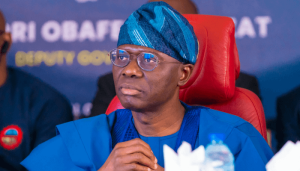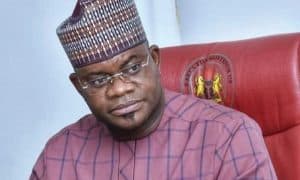CHINA HAS THE TABLE: OPINION (PART 2)

If I spend $300 to make a television in the US, I have to sell it for $400 to make a $100 profit. The American who with a net monthly income of $2000 will have $1600 left after buying my TV.
However, if I take production to China and make the same quality of TV for $100, I can afford to sell if for $350 dollar and will likely keep a net gain of $200 dollars after expenses.
Now my gain has doubled, I’ve saved Americans money and my TV will sell faster in other countries because it is cheaper but still as good.
Regardless of how bad America’s presidents may feel about China and no matter the fierceness of any trade war they might wage against her, China is a destiny child whose time has come.
In the heat of the trade war between China and the U.S., some China-based U.S. began to move to India, Mexico, Vietnam, etc.
Nigeria is the most populous black nation in the world and constitutes 2.4% of the world’s population, why aren’t these companies considering Nigeria or other African countries for that matter?
That raises the fundamental question: is ‘human beings’ synonymous with ‘human resource’?
On the surface, it might seem like a semantic poser but it truly is a socio-economic question with far reaching consequences in the context of the overall well-being of a country.
Nigeria has a large population but a pervasive poverty of tech skills. That means too many human beings but scanty human resource.
Labour is definitely cheaper in Nigeria than in China, India, Mexico or Vietnam but in a business enterprise, it’s not strictly the cost of the labour, it’s more about its usefulness.
Both surgeons and tailors use a pair of scissors. Even if the tailor has the temerity to offer to undertake an appendectomy for just 10% of the prevalent average cost of the surgery, no sane individual would lay on the couch for him.
Furthermore, there is not enough electricity in Nigeria. Although the average cost of power in Nigeria may stand at $0.07/kwh, the alleged 13,000 megawatts of electricity being generated in Nigeria is just slightly one-hundredth of the 1.19 terawatts generated in China. It is far too insufficient.
And then the notorious pandemic of corruption by politicians who would want to cripple foreign business by the weapon of heavy bribery even before business takes off.
All this tells us that Nigeria will continue to be left behind unless we overhaul our education system from the grammar-school type of University education to a practice- and economy-oriented one. STEM subjects should gain focus; that’s how Asia is winning.
Power. Practically every regime that has ever governed Nigeria paid only lip service to electricity generation.
In August, 2020, Nigeria’s minister for power stated that the country now has the capacity to generate up to 13 gigawatts of electricity but as of today, it is difficult to say if more than 4 gigawatts of electricity is actually transmitted for use by the populace.
To put things in perspective, China produces about 11 million gigawatts of electricity per year which is double the U.S. output and roughly 400 times Nigeria’s annual output of 28,000 gigawatts.
Available data suggest that power consumption per capita in Nigeria is 144kwh per annum, which is only 3.5% of that of South Africans and less than 20% of the estimated demand, making Nigeria one of the most underpowered countries of the world.
Remember, Nigeria is still Africa’s largest producer of crude oil and liquefied natural gas!
Without electricity, Nigeria’s economy is going nowhere.
It is fashionable to talk about clean energy and electric cars but such ostentatious talks are not for a third-world economy like Nigeria. We cannot afford to go green today.
The world is still firing coal to generate heat and electricity, what is Nigeria doing? Is our coal 100% sulfur? Why is power generation and distribution still in the exclusive list of Nigeria’s
albatross of constitution?
We need to do everything possible to make Nigeria’s large population and that can only be achieved via good politics.
Good politics will revamp our education sector to start producing citizens with globally employable skills.
Good politics will do everything possible to generate sufficient electricity for the growth of the economy.
Good politics will restructure the country, create a level playing field for healthy inter- and intra-regional competition, fight terrorism, reduce social unrest and attract and keep foreign investments.
Good politics will kill corruption!









